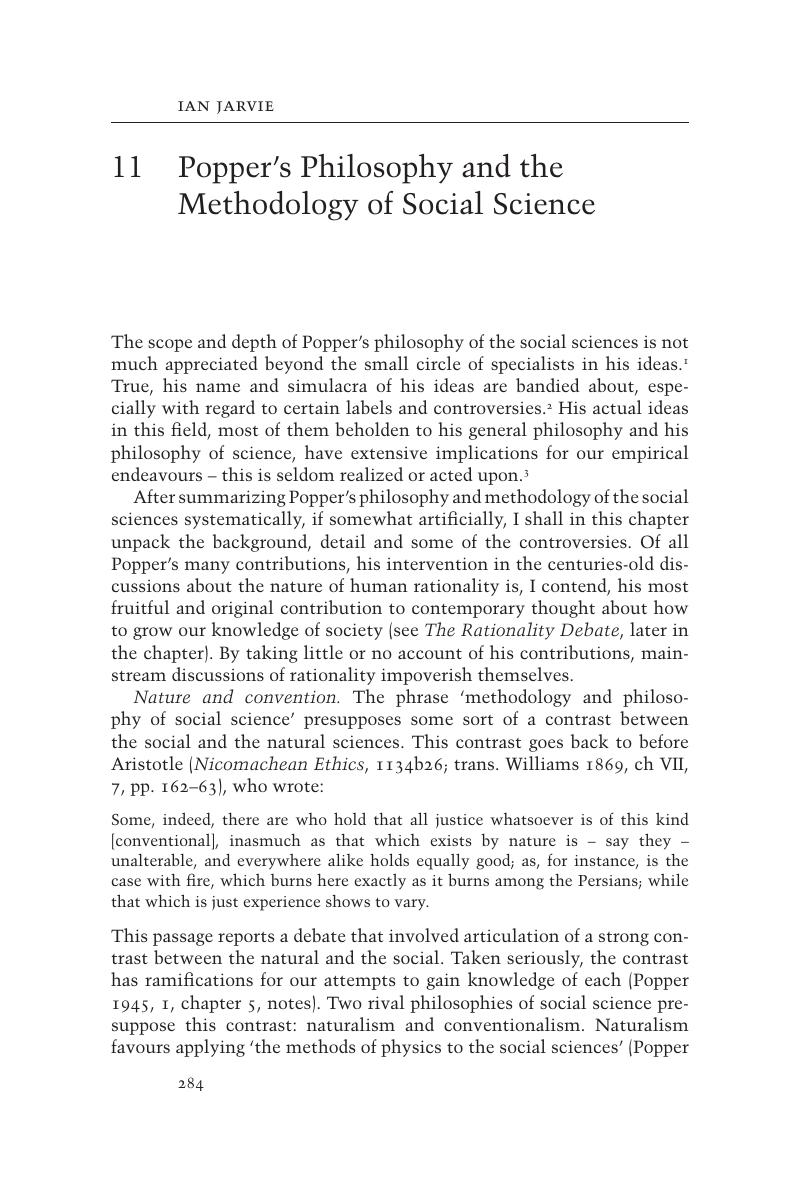Book contents
- The Cambridge Companion to Popper
- Cambridge Companions to Philosophy
- Popper
- Copyright page
- Contents
- Notes on Contributors
- 1 Popper and His Philosophy: An Overview
- 2 The Young Popper, 1902–1937: History, Politics and Philosophy in Interwar Vienna*
- 3 On Popper’s Contributions to Psychology as Part of Biology*
- 4 Popper’s Philosophy of Science: Looking Ahead
- 5 The Problem of the Empirical Basis in Critical Rationalism
- 6 Karl Popper’s Evolutionary Philosophy
- 7 Popper’s Paradoxical Pursuit of Natural Philosophy
- 8 Metaphysics and Realism
- 9 Popper’s Contributions to the Theory of Probability and Its Interpretation
- 10 Popper’s Philosophy of Mind
- 11 Popper’s Philosophy and the Methodology of Social Science
- 12 Popper and Habermas: Convergent Arguments for a Postmetaphysical Universalism
- 13 Popper’s Politics and Political Thought
- Index of Names
- Index of Subjects
- References
11 - Popper’s Philosophy and the Methodology of Social Science
Published online by Cambridge University Press: 05 July 2016
- The Cambridge Companion to Popper
- Cambridge Companions to Philosophy
- Popper
- Copyright page
- Contents
- Notes on Contributors
- 1 Popper and His Philosophy: An Overview
- 2 The Young Popper, 1902–1937: History, Politics and Philosophy in Interwar Vienna*
- 3 On Popper’s Contributions to Psychology as Part of Biology*
- 4 Popper’s Philosophy of Science: Looking Ahead
- 5 The Problem of the Empirical Basis in Critical Rationalism
- 6 Karl Popper’s Evolutionary Philosophy
- 7 Popper’s Paradoxical Pursuit of Natural Philosophy
- 8 Metaphysics and Realism
- 9 Popper’s Contributions to the Theory of Probability and Its Interpretation
- 10 Popper’s Philosophy of Mind
- 11 Popper’s Philosophy and the Methodology of Social Science
- 12 Popper and Habermas: Convergent Arguments for a Postmetaphysical Universalism
- 13 Popper’s Politics and Political Thought
- Index of Names
- Index of Subjects
- References
Summary

- Type
- Chapter
- Information
- The Cambridge Companion to Popper , pp. 284 - 317Publisher: Cambridge University PressPrint publication year: 2016
References
- 8
- Cited by



